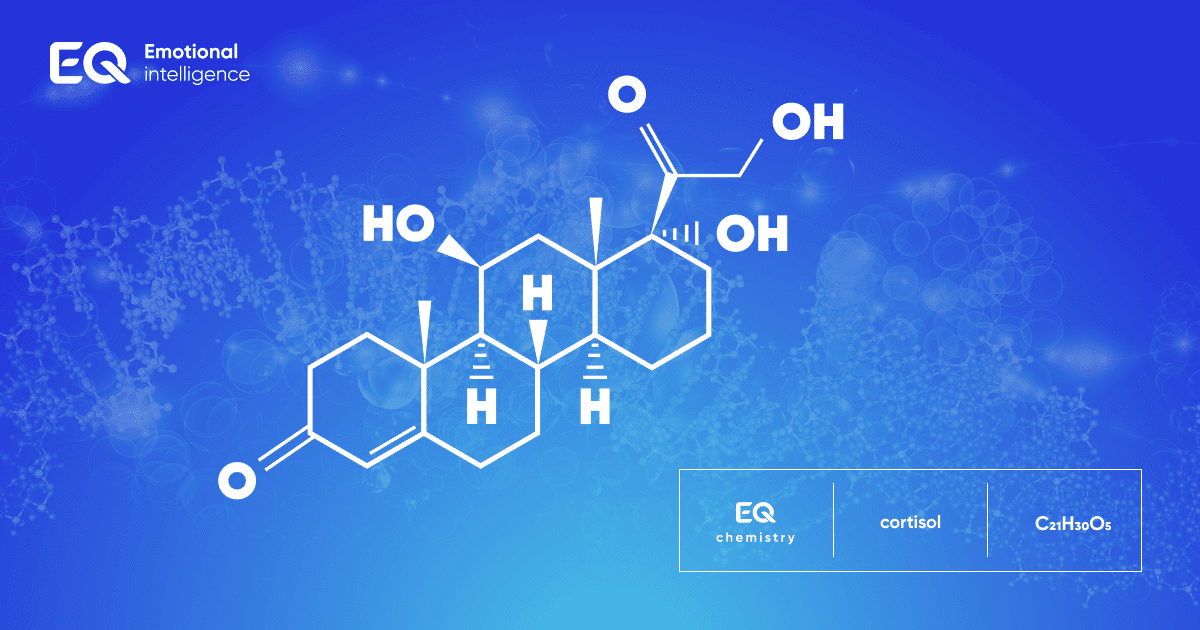Anxiety is usually perceived as anticipation of some kind of danger. And since, the brain does not care whether there is a real threat or only in thoughts – the chemical cocktail will consist mainly of stress hormones – cortisol, somatostatin, and it is also worth mentioning a decrease in testosterone and oxytocin levels.
CORTISOL is one of the main hormones that prepare a person for stress. It is synthesized in the adrenal cortex and is responsible for many functions in the body: regulation of blood sugar levels, blood pressure control, regulation of the immune system and brain activity.
Naturally, the level of cortisol rises in the morning, giving the body the command “Get up” and by the evening its amount decreases, preparing a person for relaxation and rest.
If a person feels anxiety, anxiety or stress, the level of cortisol increases and insomnia, headaches, weakened immunity, rises in blood glucose, etc. may appear.
In 1936, biochemist Hans Selye discovered the “flight or attack” adaptation mechanism of stress. He also described two types of stress that trigger the release of cortisol: good (eustress) and bad (distress) stress. This mechanism says that when the brain receives a signal to release cortisol, the body is mobilized and ready to take action. With good stress – excitement and willingness to act comes. The person performs the required action (“fight or flight”), the level of cortisol decreases and the stress chain ends.
With bad stress, the “completion” of the mechanism is often not performed. Increased cortisol begins to destroy a person from the inside.
Keep five tips for lowering cortisol levels and relieving stress and anxiety at your fingertips:
- PHYSICAL ACTIVITY. The “hit” response is perfectly recreated using kickboxing or a punching bag, and “run” is the swimming, cycling and running response.
- MEDITATION. Mindful breathing and concentration accompanies the release of happiness hormones, reducing stress hormone levels.
- SOCIAL LIFE. Studies say that isolation, little contact with people, and aggression all lead to an increase in cortisol levels. And vice versa, social actions aimed at communication, teamwork, hobbies, contact with animals, relatives, friends – lead to a decrease in stress and an increase in the feeling of being needed, understanding of one’s place in the world.
- HUMOR and LAUGHTER. American psychiatrist William Fry found that laughter actually lowers cortisol levels. Find something that makes you want to be humorous and do it.
- MUSIC. Your favorite songs trigger a rush of endorphins and lift your spirits.

Research says that a place where anxiety “lives” has been found – this is the amygdala of the temporal lobes of the brain. In this place, SOMATOSTATIN is produced – a hormone and neurotransmitter, inhibits (reduces) the release of insulin, glucagon and other hormones of the gastrointestinal tract, controls the growth of the body, reduces blood flow in the intestine.
People call anxiety different states, from mild anxiety to paralyzing fear. The hormones of joy are also involved in this, or rather, a decrease in their amount in the body.
When oxytocin levels are low, a person may feel unsafe and anxious. Tension can cause distrust and lead to other unpleasant conditions.
If in this whole cocktail the level also decreases Testosterone – insecurity and depression will be added, which increases the susceptibility to stress even more.
The above anti-stress methods will be relevant for these hormones as well.
Anxiety and its attendant states can be short-term experiences that can be influenced independently, but if this is already a trend, a way of thinking about the world or a long-term state, it is better to turn to specialists for help.


Recent Comments